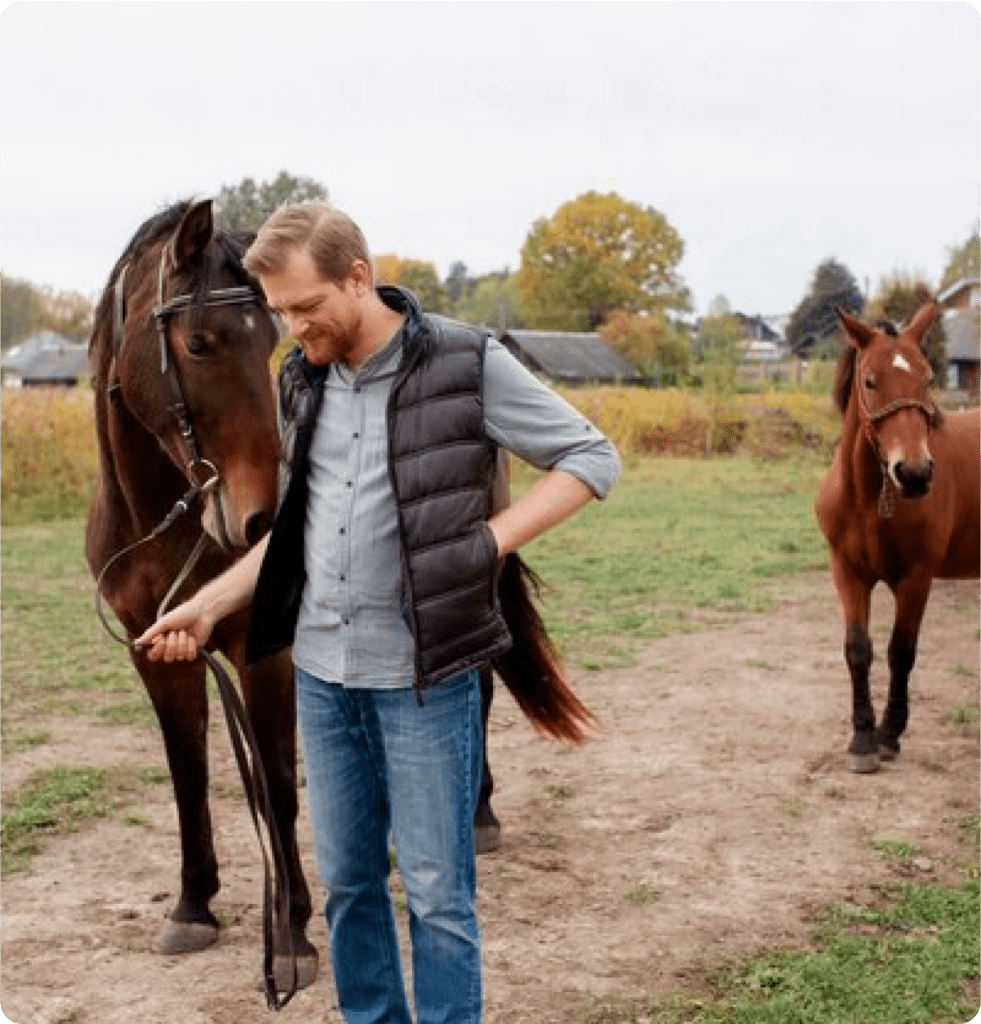Equine Therapy in Iowa
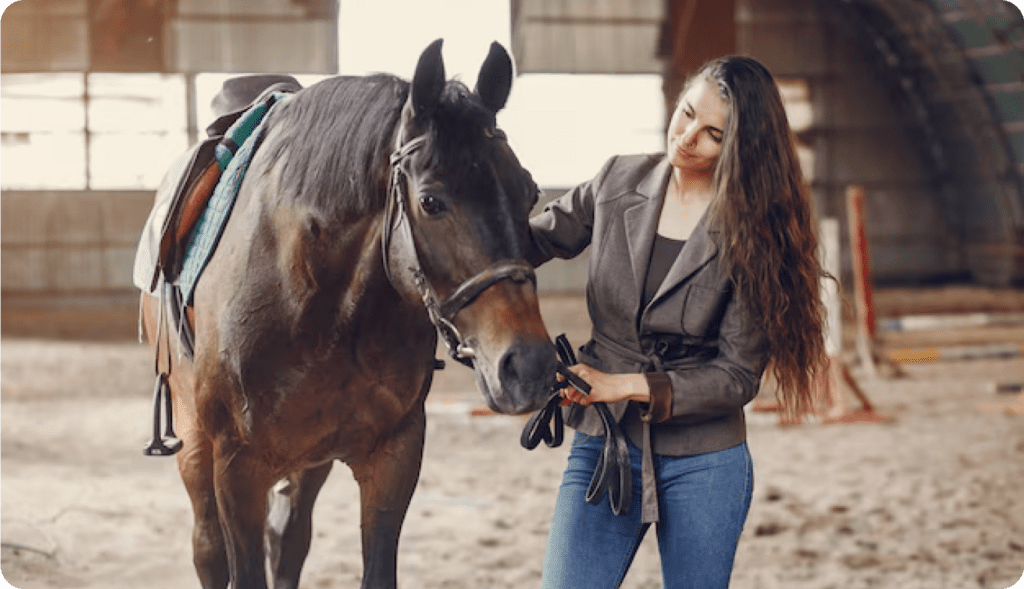
Understanding Equine Therapy
Equine therapy, also known as equine-assisted therapy (EAT), involves interactions between patients and horses to promote emotional growth and healing. This therapeutic approach is gaining popularity in Iowa and across the country for its effectiveness in addressing various mental health and behavioral issues. At St. Gregory Recovery Center, our equine therapy program is designed to complement traditional alcohol and drug addiction treatment methods, providing a holistic approach to recovery. By engaging with horses, patients can develop trust, confidence, and emotional regulation, which are essential components of successful addiction recovery and mental health treatment.
The History of Equine Therapy
Equine therapy has roots that trace back to ancient Greece, where horses were used for therapeutic riding to help improve the physical and emotional well-being of individuals. The modern practice of equine therapy began to take shape in the mid-20th century, with the establishment of organizations such as the North American Riding for the Handicapped Association (now known as PATH International). These organizations formalized therapeutic riding programs, incorporating structured activities and exercises that promote mental and physical health. Today, equine therapy is widely recognized and utilized in various therapeutic settings, including addiction recovery, PTSD treatment, and developmental disorders.
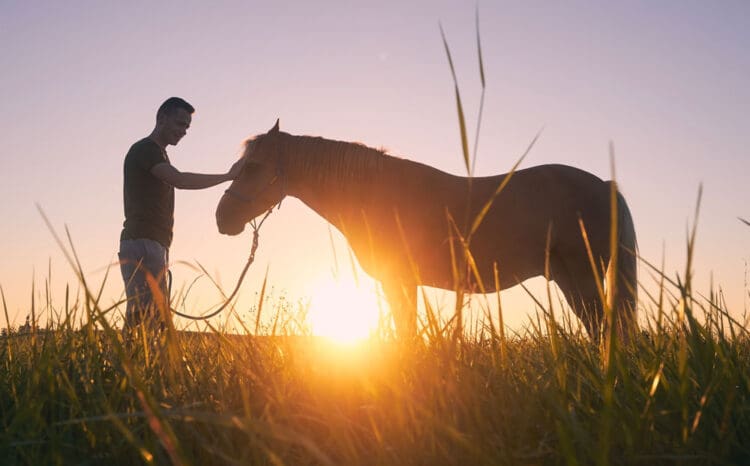
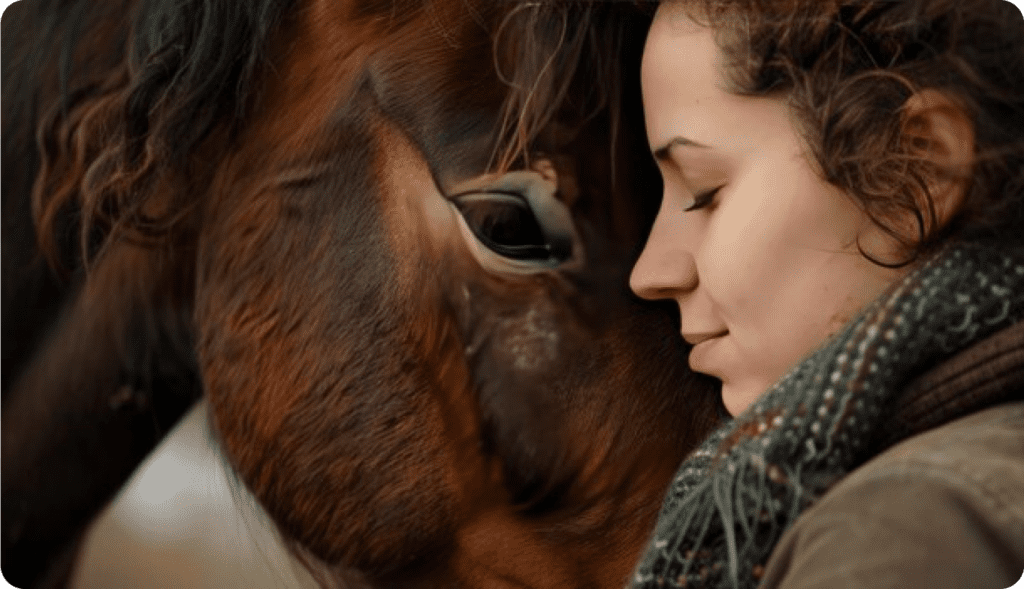
Equine Therapy Facilities in Iowa
At St. Gregory Recovery Center, our equine therapy facilities are designed to provide a safe and nurturing environment for both patients and horses. Our facilities include spacious stables, well-maintained riding arenas, and tranquil outdoor spaces where patients can interact with the horses. These facilities are managed by experienced equine therapists, who ensure all interactions are conducted safely and therapeutically. The serene setting of our equine therapy facilities allows patients to engage in introspection and emotional healing, away from the stressors and distractions of everyday life.
What are the Benefits of Equine Therapy for Addiction Treatment?
-
Emotional Regulation
Working with horses helps individuals learn to manage their emotions and develop a sense of calm. -
Building Trust
Horses require trust and respect, helping patients build these qualities in their relationships. -
Improved Communication
Non-verbal communication with horses enhances patients' ability to express themselves and understand others. -
Physical Benefits
Activities such as riding and grooming improve physical coordination and strength. -
Stress Relief
Spending time with horses in a natural setting reduces stress and promotes relaxation.

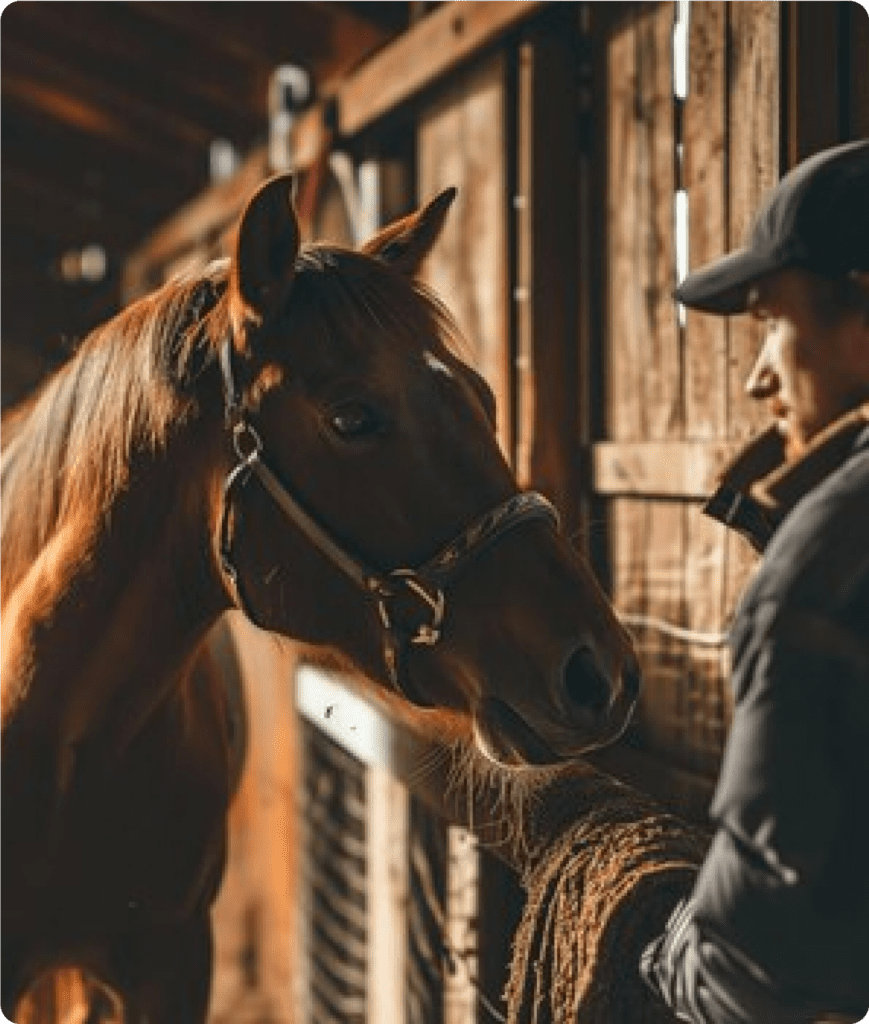
How Working with a Horse Leads to Accountability
Equine-Assisted Therapy Cannot Stand Alone
While equine-assisted therapy is a valuable component of a comprehensive treatment program, it should not be the sole method of therapy. It works best when integrated with other evidence-based treatments, such as cognitive-behavioral therapy (CBT), dialectical behavior therapy (DBT), and medication-assisted treatment (MAT). At St. Gregory Recovery Center, we incorporate equine therapy into a broader treatment plan including individual and group counseling, family therapy, and holistic practices. This integrated approach ensures that patients receive well-rounded care that addresses all aspects of their recovery.
Our Iowa Equine Therapy Program
St. Gregory Recovery Center’s equine therapy program is designed to provide a supportive and therapeutic environment for individuals in addiction recovery. Our program includes:
-
Personalized Sessions
Tailored to meet the specific needs of each patient. -
Experienced Therapists
Licensed professionals with expertise in equine-assisted therapy. -
Comprehensive Care
Integrated with other treatment modalities for a holistic approach. -
Safe Environment
Well-maintained facilities ensuring safety and comfort for patients and horses -
Stress Relief
Spending time with horses in a natural setting reduces stress and promotes relaxation. -
Ongoing Support
Continuous support and resources to help patients maintain their progress.
Equine therapy at St. Gregory Recovery Center in Iowa offers a unique and effective approach to addiction recovery and mental health treatment. If you or a loved one is interested in learning more about our equine therapy program and how it can support your recovery journey, contact us today at 888-778-5833. Our compassionate team is here to provide the information and support you need to take the first step towards healing and recovery.
